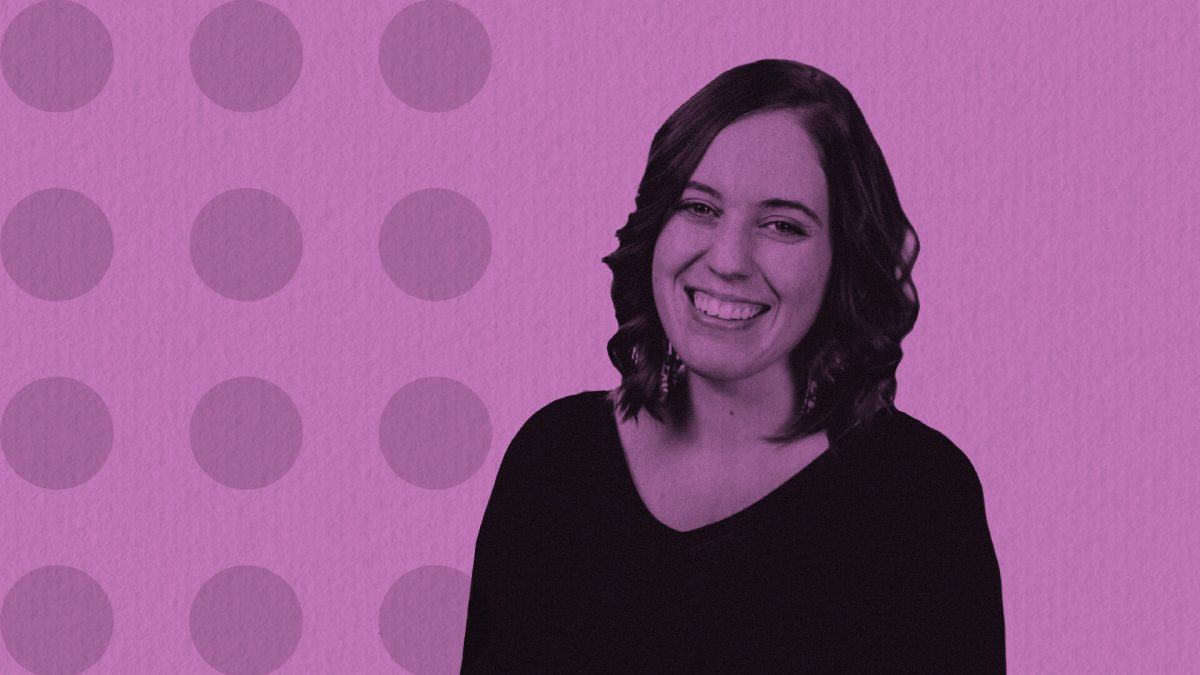On the sixth floor of the John Buhler Research Centre, Taylor Morriseau is working before sunrise. Perched on a lab stool, she peers through a microscope at a pancreatic cell line harboring a unique genetic variant common among Indigenous youth with type 2 diabetes in Manitoba.
Part scientist, part social activist, Morriseau [BSc(Hons)/17] always considers the microscopically minute in concert with the monumentally big.
“It weighs quite heavily on me, the implication that what we do within the lab, albeit so small and seemingly insignificant, has really large implications for Indigenous health across this country,” says Morriseau, now in her fourth year of a PhD in pharmacology and therapeutics in the Rady Faculty of Health Sciences.
One of Canada’s top graduate student researchers—she received the prestigious Vanier Scholarship in 2018, and was also a Rhodes Scholar finalist—Morriseau insists there’s still such a disconnect between the lab, real life, and Indigenous knowledge systems that requires some rethinking.
“It’s a major gap within sciences in general,” says the 26-year-old, who focuses on genetics, diet and diabetes. “People need to understand the larger socio-political problems that are happening in order to inform their research questions and really answer these multifaceted questions with more than one approach.”
This pursuit has shaped her exploration of several massive health-related challenges facing Indigenous people, from water quality to food security to hepatitis B (endemic among Inuit circumpolar populations)—to her main focus of diabetes.
A Cree woman with roots in Peguis First Nation, Morriseau says the rate of type 2 diabetes in Indigenous children in Manitoba is 20 times higher than the national average. More than half will develop severe complications, including end-stage kidney disease before age 30.
“Fifty years ago, diabetes did not exist within children or Indigenous communities,” she says. “It aligns well with the effects of colonization.”
Morriseau is investigating if a switch from a Western carbohydrate-heavy diet to a more traditional Indigenous one, rich in animal protein and fat, could have a positive impact on pancreatic function. Her research looks at the complex interplay between genetics, culture, diet and mechanisms of disease in order to delay or prevent onset.
“These really beautiful collaborations have come out of this,” she says.
“I’m pursuing larger research and trying to stay true to what I believe in and where I think the issues lie.”
Morriseau brought the same intensity to her previous study of water security, which, during a UM co-op study program with professors Ayush Kumar and Annemieke Farenhorst, had her visiting people’s homes, sampling systems, and honing in on antibiotic-resistant genes within the microbes to determine the source.
“Antibiotic-resistance genes have been detected in drinking water from First Nations communities. New research is providing insight into where those microbes may enter along the distribution system,” she says. “If you don’t have access to clean water, if you don’t have access to food, then how are we supposed to live healthy, happy lives?”
She continuously asks herself: Where am I going to be the most use?
Morriseau feels the responsibility to not only do community-driven research, but to mentor other Indigenous youth trying to knock down barriers in STEM fields through outreach initiatives like the Neechiwaken Indigenous Peer Mentorship, Biomedical Youth and Children Rising Mentorship programs.
And when you’re teaching, you learn, she notes. Among her mentees was a first-year Indigenous student, Ashley Daniels, who has since won multiple leadership awards, serves her community as the Youth Female Chief, and now wants to go into medicine.
“She’s really doing fantastic things for this community and being the advocate that I knew she could be,” says Morriseau.
She encourages the youth she works with to dig deep into their identity, as she was prompted to do during a UM service-learning trip to Belize in 2014 to learn about food security and socio-economic issues. A Mayan elder challenged Morriseau to learn her own language; upon her return to Manitoba, she immediately studied Cree.
“A common thread among many people my age is we’re missing that language piece as a consequence of colonization. Together, we’re trying to reclaim it in the hopes of passing it on to future generations.”
Morriseau pulls back her sleeve to reveal a stylized tattoo of a beaver in black ink. Her Indigenous name is Busy Beaver, gifted by her grandfather. Today, she feels its symbolism reflects her current reality, of bridging academic and Indigenous communities in pursuit of knowledge and research.
“The beaver is commonly recognized within the Seven Teachings. It elicits wisdom and knowledge and it’s all the things that I’m trying to pursue. The beaver builds dams that nourish communities and sustain our animal relatives…. It’s the bringer-together of worlds and it is needed for that ecosystem to thrive,” she says. “I like to believe that’s my purpose within this world too: to pursue knowledge and to bring worlds together.”
With such diverse interests competing for attention in the mind of Taylor Morriseau, we asked the young researcher to dissect the similarities between music and science.
In high school, Morriseau took every science elective she could, balancing her curiosity about biology and the intricacies of the body with her passion for playing goalie in hockey (she liked the feeling of being the rock for the team) and playing piano (on a Steinway & Sons she inherited from her great-grandmother). Her favourite composer? Frederic Chopin.
“Piano is an outlet to express any emotion possible, whereas scientific literature often seems devoid of any emotion at all. But whether at the piano or the lab bench, the fundamental skills are that of patience, dedication and a desire to bring meaningful life to notes on a page.”
Sit in on a conversation between Dr. Catherine Cook [MD/87, MSc/03] and Taylor Morriseau.







